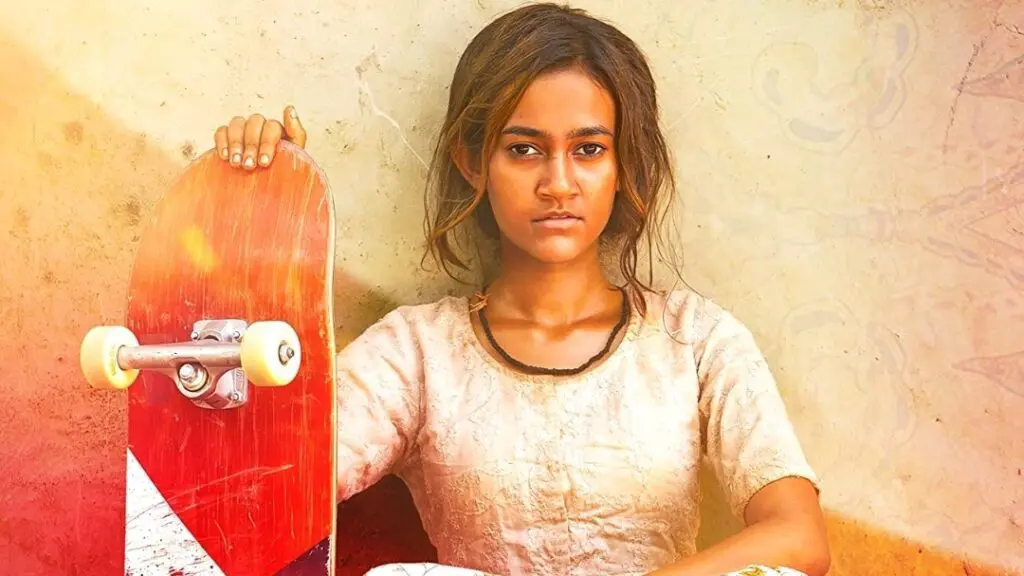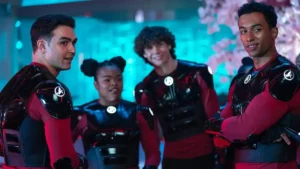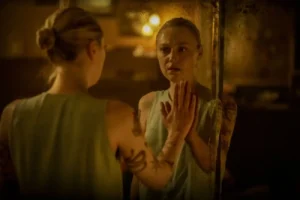Summary
Everything about Skater Girl is the definition of feel-good, even if it struggles to regain its focus.
In all my years of watching movies, films, pictures, or the “talkies,” as my great-great-grandparents might have said, I’m not sure I’ve ever witnessed what I saw in the middle of the first act of Skater Girl. The main character, a teenage girl, doesn’t know how old she is.
How on earth are you supposed to make a coming-of-age tale when the film’s driving force doesn’t know when they are supposed to mature? She has no idea when she turns sixteen.
Skater Girl isn’t a fish-out-of-water story, as it’s a fish that isn’t fitting in the water they call home. Our — we think — teenage tribal girl in India, Prerna (played by newcomer Rachel Saanchita Gupta), comes across a pale, white, English woman named Jessica (played by Amy Maghera), who is finding her Eat, Pray, Love.
She introduced her village to skateboarding, the grind, and immediately falls in love with the urban surf as soon as her toe touches the deck. She’s the first Z-girl of India, and she wants to compete. But, of course, against all odds, as she has a rough road to shred while performing some tricks along the way.
Skater Girl was originally titled Desert Dolphin (such a better title) and directed by Manjari Makijany. This is her first feature after a short and award-winning run with such short films as The Last Marble and The Corner Table. It’s a sweet, simple story that we have seen before but filled with melancholy and gorgeous views.
The script has subtle authenticity. The fact that kids call anyone over the age of 20 “Auntie” or “Uncle” and insights into the caste system that you may not have thought of — the upper class have fewer friends because they can’t play with the lower ones.
Where the film falters is the faux romance between Maghera’s Jessica and Erick (played by Jonathan Readwin). Of course, on her trek to revisit her father’s heritage, she comes across a white-savior type/do-gooder/former friend from LA who happens to be teaching around the small village of Khempur, the middle of India’s heartland (the film was shot in the same area of The Exotic Marigold Hotel, and the filmmakers built India’s largest skatepark).
The large plot points seem to develop out of random, unlikely encounters or random whims, like building a skatepark with a mention of resources.
The actors are fine, Maghera’s a natural beauty, but their dialogue and entire plotline feel forced. With Netflix as the major studio player, you must wonder if the script was given a makeover to bloat these minor characters for mainstream studio audiences.
Also, she has an annoying habit of talking in English to someone who is talking to her in Hindi when she clearly has spoken their native language throughout the film.
Though films usually benefit from the true story tagline, which Makijany’s film does not have, everything about Netflix’s Skater Girl practically makes you smile.
From Prerna’s little brother starting a protest on how using a skateboard is not a crime after briefly studying the work of Gbandi to Erick’s quo about no matter where you go in the world, authority figures hate skateboards, it’s the definition of a feel-good, against an all-odds film.
If only Prerna weren’t used as a backdrop for so much of the film. Instead of the direct struggle with a country that is doing everything it can to keep from evolving into a global world without borders and respecting its own culture. They could have had something special. Fortunately, Skater Girl regains its focus by its third act. That’s enough, for now, for a mild recommendation.
Read More: Skater Girl Ending Explained




